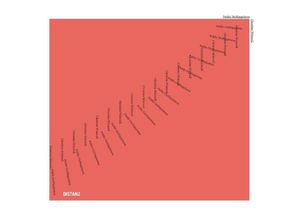Formen des Protests als postaktivistischer Konzeptualismus Zeitungsausschnitte Textsplitter
popkulturelle Artefakte aber vor allem eigene und gefundene Fotografien sowie Zeichnungen sind
das künstlerische Material das Christine Würmell (geb. 1972 in Frankfurt Main lebt und
arbeitet in Berlin) thematisch und formal in raumgreifenden Settings verdichtet. Bereits seit
den 1990er-Jahren dokumentiert sie die radikale Transformation öffentlicher Räume in der
Nachwendezeit in Berlin und andernorts. Besonders die Besetzung von Denkmälern und
Straßenmobiliar durch Graffiti sind Gegenstand ihrer fotografischen Arbeit. Angereichert mit
historischem Pressematerial und anderen gesammelten Indizien wie Flyern von Demonstrationen
gegen steigende Mieten bilden ihre Werke ein reichhaltiges recherchebasiertes visuelles
Konvolut das Würmell konzeptuell und mit gesellschaftskritischem Blick zusammenfügt. Die
Monografie Public Un Happiness führt umfangreich in Christine Würmells Werk ein. Mit Essays von
Bettina Klein und Raimar Stange sowie einem Gespräch zwischen Birgit Eusterschulte und der
Künstlerin. Forms of Protest as Post-Activist Conceptualism Newspaper clippings snippets of
text pop-cultural artifacts and above all her own and found photographs and drawings are
the material that the artist Christine Würmell (b. Frankfurt am Main 1972 lives and works in
Berlin) compiles in thematically and formally dense sprawling settings. In the 1990s she
started documenting the radical transformation of public spaces that commenced in Berlin and
elsewhere after the fall of the Wall. In particular she trains her lens on how graffitists
appropriate monuments and street furniture. Enriched with historic press excerpts and other
collected evidence such as flyers from protests against rising rents Würmell's works
constitute a large body of research-based visual material that she arranges with a keen eye for
its conceptual dimensions as well as its critical reflection of society. The monograph Public
Un Happiness offers a broad-based introduction to Christine Würmell's oeuvre. With essays by
Bettina Klein and Raimar Stange and a conversation between Birgit Eusterschulte and the
artist.



